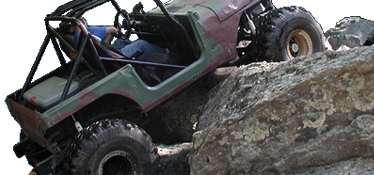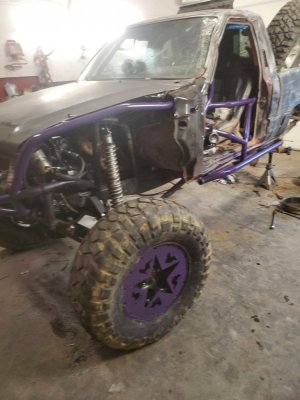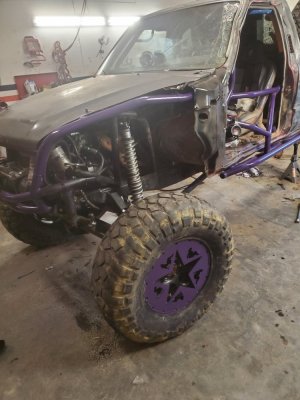Charles Sauder
Member
- Joined
- Apr 15, 2020
- Location
- Boone, NC
At my wits end with these damn brakes. Have to pump the brakes twice to get a firm pedal, and then it stops great. The pedal doesn't leak down as you hold it, but if you let off and wait just a few seconds it will go to the floor. It has mediocre braking power on the first pump. 1986 Toyota Pickup. Solid axle. 3 link w/ hydro assist on coil overs. Chopped and tubed most of the front half and moved the axle forward about 4 inches. When we did that we ran all new "soft" lines from jegs. Since then I have replaced Master (twice) both front calipers, and both rear wheel cylinders. One rear wheel cylinder was leaking slightly and I thought for sure that would fix my issue. Nope. We eliminated the proportioning valve as well. The only original lines on the truck are the hard lines from the master down the frame rail. No visible leaks anywhere. I have the rear shoes adjusted as far out as possible until the wheels became difficult to turn by hand. I have bled and bled and bled, probably have $75 in brake fluid. I bled them in the correct order. No air in the lines, I'm almost sure of it. I did not bench bleed the master but I have never had to before, it seems to be moving fluid well. I have a master for a v6 truck coming, which is an upgrade and supposed to move more fluid, and I will bench bleed it this time. It used to stop great before we did the coilovers and front half, not sure if thats coincedental or something we did. My next move while waiting for the THIRD new master is to first block off the rear brakes, and then the front, at the master, and see if I get a firm pedal either way. I am about to lose my gourd here. Any suggestions would be appreciated.



